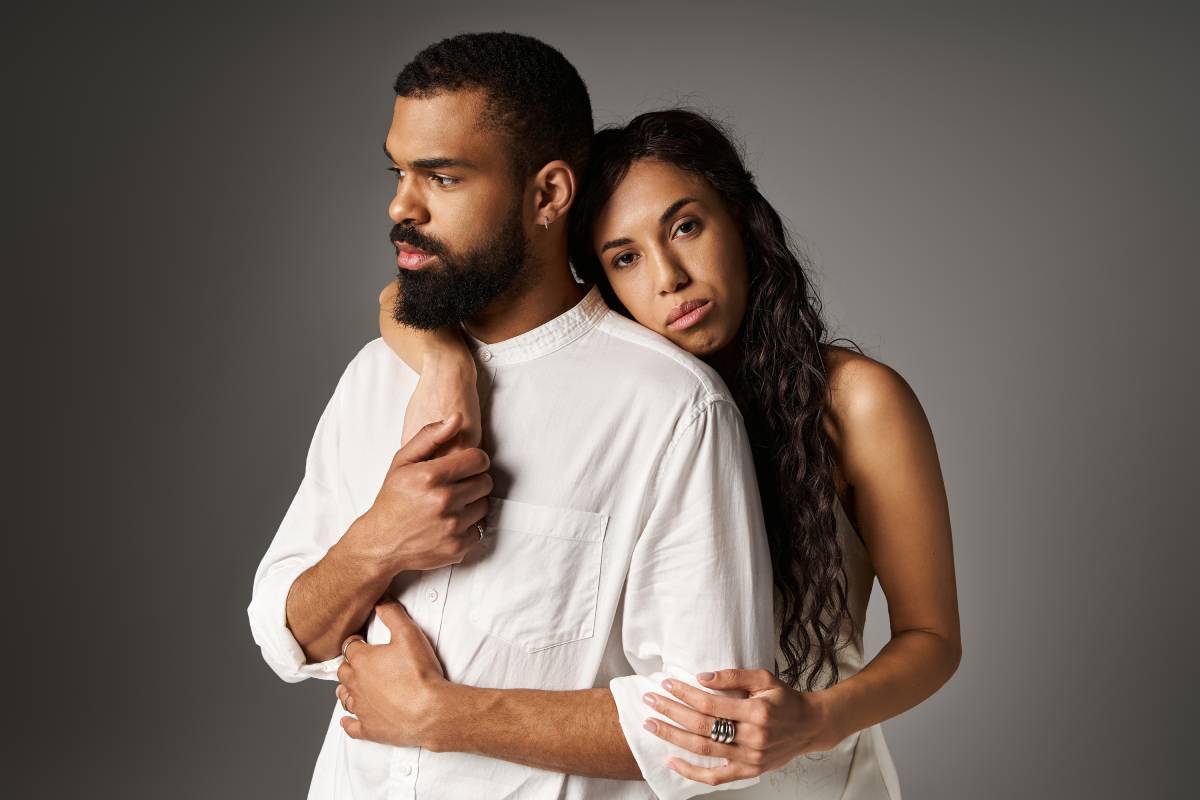Relationships can be full of love and support, but they can also be confusing and painful. Many people feel unsure about how to build or keep a strong relationship. If you often feel hurt, anxious, or unhappy in relationships, you are not alone.
This article looks at why relationships can be so hard. We’ll talk about why some people suffer more, why breakups hurt so much, and how your past can affect your love life today.
You’ll also find simple ways to feel better, build confidence, and have healthier relationships in the future. Whether you’re feeling lost, healing from a breakup, or just want to understand yourself more, this guide is here to help.
Why Do I Struggle in Relationships?
There are many reasons why relationships can be difficult. Here are some common causes:
1. Past Experiences Affect Relationships
Our early life, especially childhood, shapes how we handle relationships. If you had a hard time with your family or caregivers, you might feel scared or unsure in relationships.
You might worry about being left or rejected. These feelings can make it hard to trust or feel safe with others.
2. Fear of Being Vulnerable in Relationships
Being close to someone means sharing your feelings and thoughts. This can be scary because you might get hurt. Many people find it hard to open up. This fear can make relationships feel distant or stressful.
3. Low Self-Esteem Affects Connections
If you don’t feel good about yourself, connections become harder. You might think you don’t deserve love or worry that others will leave you. This can make you feel anxious or sad in relationships.
4. Poor Communication in Relationships
Many problems in relationships happen because people do not talk openly or listen well. When you cannot share your feelings or understand your partner, it causes fights and hurt feelings.
5. Unhealthy Relationship Patterns
Sometimes people keep choosing partners who are not good for them. This might be because of past pain or habits. These bad patterns make relationships painful and hard to keep.
6. Unrealistic Expectations in Relationships
Expecting too much from your partner or thinking relationships should be perfect can cause problems. No one is perfect, and all relationships have ups and downs. When reality is different from your expectations, it can lead to disappointment.
Why Do I Suffer So Much in Relationships?
Many people feel deep pain in relationships. This pain can affect how we feel, how we see ourselves, and our happiness. Knowing why this pain happens can help us heal and improve.
1. Losing Someone Feels Like Real Pain
Our brains react to emotional pain like physical pain. When a relationship ends or goes through a hard time, it can feel very painful, just like an injury.
2. Emotional Dependence on Relationships
If you rely too much on your partner for happiness or support, any problem in the relationship feels very hard. This can make you suffer more than others.
3. Attachment Styles Affect Connections
How you bond with others depends on your early experiences. Some people have anxious attachment and feel very worried about being left. This can make connections more stressful and painful.
4. Past Trauma Can Make Bonds Hard
If you had bad experiences before, such as abuse or loss, these memories can affect your current bonds. Sometimes old pain returns and makes new bonds hard.
5. Avoiding or Fighting in Bonds
Some people try to avoid problems, which causes feelings to build up inside. Others may get angry and fight often. Both ways can cause a lot of pain in connections.
Why Is It Hard to Get Over Relationships?
Letting go of a relationship is often one of the hardest things we do. Here’s why it is difficult:
1. Strong Emotional Bonds in Relationships
When you love someone, your brain releases chemicals that create strong attachments. Breaking these bonds causes feelings similar to withdrawal from addiction.
2. Losing a Shared Future
Relationships often include plans and dreams. When they end, you lose not only the person but also the future you imagined together. This loss causes deep sadness.
3. Thinking “What If”
After a breakup, it is common to replay the relationship and think about what you could have done differently. This makes it hard to move on because your mind stays stuck in the past.
4. No Clear Ending
Sometimes relationships end without proper closure or explanation. This leaves questions and feelings unresolved, making it hard to let go.
5. Reminders Everywhere
Seeing places, things, or hearing songs connected to the person can bring back memories and feelings. These reminders make healing take longer.
How to Heal and Build Better Relationships
Even if relationships have been hard, healing is possible. Taking control of your life and emotions is a key part of this process. Here are some ways to help yourself:
1. Understand Yourself and Your Relationships
Take time to think about your feelings, behaviors, and past. Understanding why you struggle in relationships helps you change for the better.
2. Build Self-Esteem
Try to like and respect yourself. When you believe in your worth, relationships feel more secure. Take small steps to appreciate who you are. Say kind things to yourself and spend time doing things that make you feel good.
3. Learn to Communicate Well
Talk honestly about your feelings and really listen to others. Good communication builds trust and solves problems. Use simple words to express what you feel. Listen without interrupting, and ask questions if you’re unsure.
4. Set Realistic Expectations
Know that every relationship has ups and downs. Don’t expect everything to be perfect. Focus on understanding, teamwork, and growing together. Be kind when things go wrong no one gets it right all the time.
5. Get Support if Needed
If you feel stuck or overwhelmed, talk to a counselor or therapist.
Professional help can give you new tools and help you understand your feelings better. It’s a strong step, not a weak one.
6. Be Patient and Kind to Yourself
Healing takes time, and that’s okay. Don’t push yourself too hard. Rest when you need to, and forgive yourself for mistakes. You’re doing your best, and that’s enough.
7. Find Supportive People
Spend time with people who make you feel safe and cared for. Good friends and family can lift your mood and remind you that you’re not alone. Let go of people who make you feel small or judged.
Conclusion
Struggling and suffering in connections is common, but it does not have to be permanent. Many reasons cause pain, from past experiences to fear and communication issues. Understanding these reasons is the first step to healing.
Getting over these bonds can be tough because emotional ties are strong, and loss feels like losing a part of yourself. But with time, patience, and the right support, you can heal and build better connections.
Remember, connections are a learning journey. Each one teaches us something about ourselves and how to connect with others. By caring for yourself and seeking growth, you can create bonds full of love, respect, and happiness.




